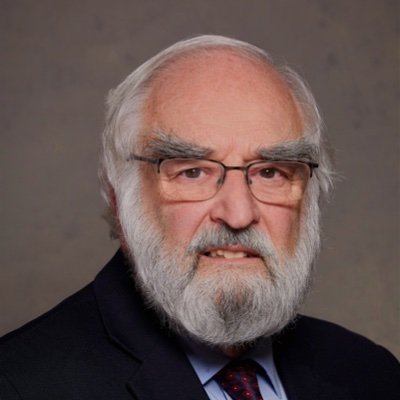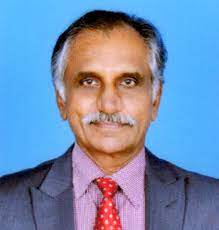Kim Nossal is a leading voice on Canadian foreign policy. He is an emeritus professor of political studies in the Centre for International and Defence Policy at Queen’s University. Kingston, Ontario. He has served as editor of International Journal, the quarterly journal of the Canadian International Council, Canada’s institute of international affairs (1992-1997), and was president of the Canadian Political Science Association (2005-2006). He served as chair of the academic selection committee of the Security and Defence Forum of the Department of National Defence from 2006 to 2012. In 2017 he was awarded an honorary doctorate by the Royal Military College of Canada.
He is the author of a number of works on Canadian foreign and defence policy, including The Politics of Canadian Foreign Policy, originally published in 1985. The latest edition, now co-authored with Stéphane Roussel and Stéphane Paquin, will be published in French in 2023. His most recent books are Charlie Foxtrot: Fixing Defence Procurement in Canada (2016) and The Politics of War: Canada’s Afghanistan Mission, 2001–14, co-authored with Jean-Christophe Boucher (2017).
Bi-lateral relations between Canada and Sri Lanka began in the 1950s. The island is now dotted with landmarks of Canadian assistance, such as the Hardy Institute, the Maduru Oya Reservoir and the ubiquitous train locomotives with names of Canadian cities. When the Harper Administration took over in 2006, their take on the war in Sri Lanka was framed by the global discourse on the ‘war on terror.’ The turning point was the end of the civil war in 2009. The Harper Administration then became a leading proponent of reform in Sri Lanka. As of now, relations are critical. How do you interpret this shift?
First, I would not characterize the Harper government’s policies after 2011 as seeking “reform in Sri Lanka.” Ottawa’s policies were not only highly critical — Harper’s foreign minister called the government of Sri Lanka “evil” and Harper himself boycotted the Commonwealth Heads of Government meeting in Colombo — but there was little in Canadian policy that sought “reform”. Rather, the Harper government sought to hold the government in Colombo to account for the atrocities that occurred in the final stages of the civil war.
The change in the Harper government’s general approach after the end of the civil war in 2009 can readily be explained by domestic Canadian politics.
During the Cold War and post-Cold War eras, the Liberal Party of Canada was traditionally the party that immigrants to Canada from different countries around the world supported. And the Liberals were very good at attracting, and entrenching, that support. In the case of Canadian voters who had come from Sri Lanka, for example, the Liberals were openly sympathetic to the LTTE, since the vast majority of the 200,000–300,000 Canadians from Sri Lanka were Tamil.
Before the 2005 election, the Conservatives thought that they could use the Liberal Party’s open support for the LTTE as an electoral weapon against the Liberals: they could criticize the Liberals as being “soft on terrorism”. So when they won the election in 2006, the Conservatives took a strong line against the LTTE as a terrorist group.
But in their nine years in office, the Harper Conservatives were also seeking to increase their support among immigrant groups, and some have argued that in 2009, the Conservatives realized that they should do what the Liberals had done, and that is try to appeal to Canadians of Tamil origin.
I agree with that argument. But we must remember that there was also an important change in attitudes in Canada towards Sri Lanka after the civil war ended in 2009. In particular, the high visibility of the war crimes and human rights violations in the closing phases of the civil war made it very hard to defend the government in Colombo. Canadian public opinion was moved by the images of what was happening — and that public opinion shift was mirrored in government, in my view.
There is another important factor in explaining the Harper government’s shift: the appointment of John Baird as minister of foreign affairs in 2011. As foreign minister, Baird was unapologetic about his insistence on taking a “moral” approach to the world of world politics. Bluntly put, he divided the world into “black hats” and “white hats” — and the government of Mahinda Rajapaksa was definitely, in Baird’s view, a “black hat” (hence Baird’s characterization of the government in Colombo as “evil” — an unusual way for a foreign minister to talk about other government, but not at all unusual for Baird).
The Trudeau Administration sanctioned two former Sri Lankan presidents in January 2023.
a: Were these sanctions imposed because of pressure from the Tamil Diaspora?
As far as I am aware, no: the government of Justin Trudeau walks in very close step with other countries of the Core Group on Sri Lanka at the Human Rights Council, and there has been strong actions by the Core Group as a whole, and by some of its individual members, to try to pressure both the Gotabaya Rajapaksa and Ranil Wickremesinghe governments to change their policies on holding individuals accountable for atrocities the occurred during and after the civil war. While it is possible that Canadian Tamil organizations might have pressed the Trudeau government to take such actions, it is likely that they would have been pushing on an already open door, since other Western countries and Canada were already engaged.
It would appear that the four individuals sanctioned (former presidents Gotabaya Rajapaksa and Mahinda Rajapaksa, and two members of the armed forces who have been implicated in atrocities) were sanctioned as part of a broader multilateral move.
b: Is this part of a grey zone operation for Canada to become a pivotal middle power in the Indo-Pacific?
In my view, no. Canadian government leaders recognize that Canada does not have the ability to be a “pivotal middle power” in the Indo-Pacific. The government in Ottawa has a very modest Indo-Pacific Strategy (published in 2022). Sri Lanka is mentioned just once — in a human rights context.
From the point of geo-political contest, the Indo-Pacific is now heart of American national security strategy. Apart from this, the debate on the role of a middle power in the Indo-Pacific and the Quadrilateral Security Dialogue (Quad) is growing remarkably. In 2021, Canada joined in the Quad naval exercise for the first time. This was a significant step. Mélanie Joly, Minister of Foreign Affairs, launched Canada’s Indo-Pacific Strategy last year. It seems that Canada also appears to be with U.S. moves to contain China in the Indian Ocean region. Your thoughts?
There is no doubt that in 2022, the Canadian government of Justin Trudeau moved explicitly to be more closely aligned with the Biden administration in the Indo-Pacific. Canada’s embrace of the “Indo-Pacific” language is a symbol of the desire of the Trudeau government to be closer to the US. However, I do not believe that this constitutes an attempt by Canada to join an effort to “contain China.”
Rather, the Trudeau government appears to have changed its view about what kind of international actor China is. When he came to the prime ministership in November 2015, there is no doubt that the Trudeau government had a positive view of China and was keen to have a closer relationship. Today, the government is on the record as seeing China as a “disruptive” force in global politics that should be met with appropriate responses to stand up for the existing global order. (This, in my view, is very different than an effort to “contain” China.)
What changed the Trudeau government’s view? First, Trudeau and his ministers were presented with unambiguous evidence that China was not the “friendly” country that they had been treating it as. The evidence were the actions of the government in Beijing: taking two Canadians hostage for 1000 days, having Chinese “wolf warrior” diplomats in Canada engage in their oh-so-special brand of “diplomacy”; having PLA aircraft buzzing Canadian aircraft in international airspace in the South China Sea; interfering in Canadian elections to work for candidates who are pro-China and against candidates who are not pro-China; running “police stations” in Canadian cities.
And the government in Ottawa is now closer to the views of ordinary Canadians, who have changed their view of China dramatically over the last 10 years: ten years ago, the majority of Canadians had a very favourable view of China. Today just 8 per cent of Canadians think good relations with China should be a priority.
But the government also changed its mind (and its posture) because the United States made it quite clear that it would be requiring its friends and allies to “make the China choice” (as the Australian academic Hugh White so correctly puts it). Canada is too dependent on smooth trade relations with the United States to tolerate a sharp division. So Canada closed that gap. (And the shift in Canadian public attitudes and the aggressive, but short-sighted own-goal behaviour of the government in Beijing made the shift easy.)
The Sri Lanka issue is continuously politicised in Canada due to the involvement of the Tamil diaspora. Recently, the provincial government of Ontario passed a bill (Bill 104) which introduced a “Tamil genocide education week. The Tamil diaspora believes they could shape Canada’s policy against Sri Lanka. Against this backdrop, Canada -Sri Lanka bilateral relations seem complex. Your thoughts?
Ironically, the government-to-government relationship between Canada and Sri Lanka has become less complex since the end of the civil war, since Canada is now focused almost exclusively on the human rights issue, and particularly on the Sri Lankan government’s unwillingness to hold those who engaged in human rights violations and crimes against humanity during and after the civil war. Other issues (trade, development assistance, etc) are not at all important compared to the human rights issues.
Canada’s concerns over human rights is *not* driven by diaspora politics, but by Canada’s membership in a broader coalition of states concerned about this matter. Diaspora politics are definitely at play, yes, but these politics play out in domestic politics in Canada rather than in Canadian foreign policy. The “Tamil genocide education week” is a good example: this measure was introduced in a provincial parliament (in Canada, provinces have jurisdiction over education), and it was introduced to please Tamil groups in Ontario, but it has no impact on the federal government’s continued concern that the government in Colombo refuses to hold human rights violators accountable.
Canada’s Indo-Pacific Strategy acknowledges the Indian Ocean region’s centrality in the present-day geopolitics. Some point out that the strategy provides a new opportunity for both Canada and India to recalibrate their geo-economic and geopolitical engagement. Is this a new era in Canada – India relations?
The government of Justin Trudeau has stated that it would like to improve relations with India, and Ottawa’s newly published Indo-Pacific Strategy places India in an important position (India is mentioned 27 times in this 23-page document). While both New Delhi and Ottawa have indicated an interest in improving relations, there are some impediments. Most importantly, diaspora politics plays an important role in the relationship (unlike diaspora politics involving Canadians of Sri Lankan heritage, which I argue does not have an impact on the government-to-government relationship). Over 1.4 million people in Canada — 4 percent of the population — are of Indian heritage, and diaspora politics in Canada have had a negative impact on the relationship in the past. There are also concerns about Indian students at Canadian educational institutions. Whether these concerns will be transcended by a desire of both governments to reset their geostrategic and geoeconomics relationship is not clear.




